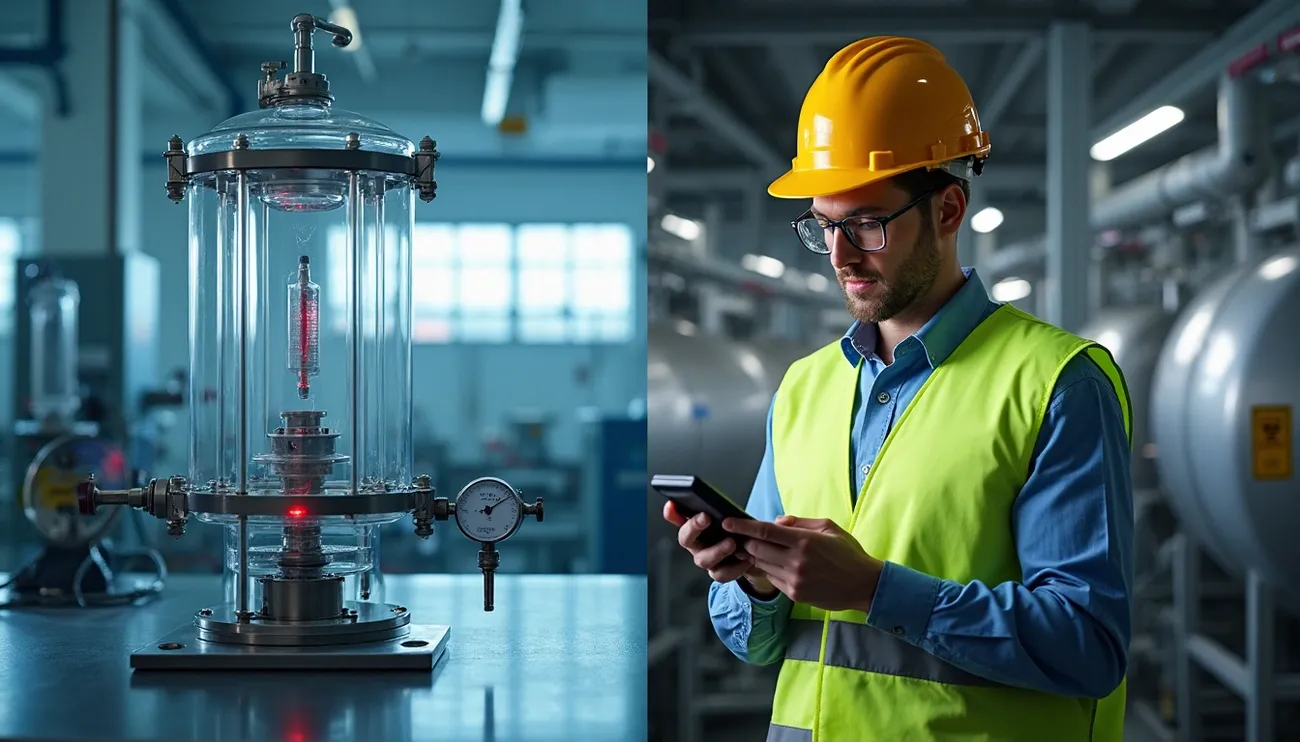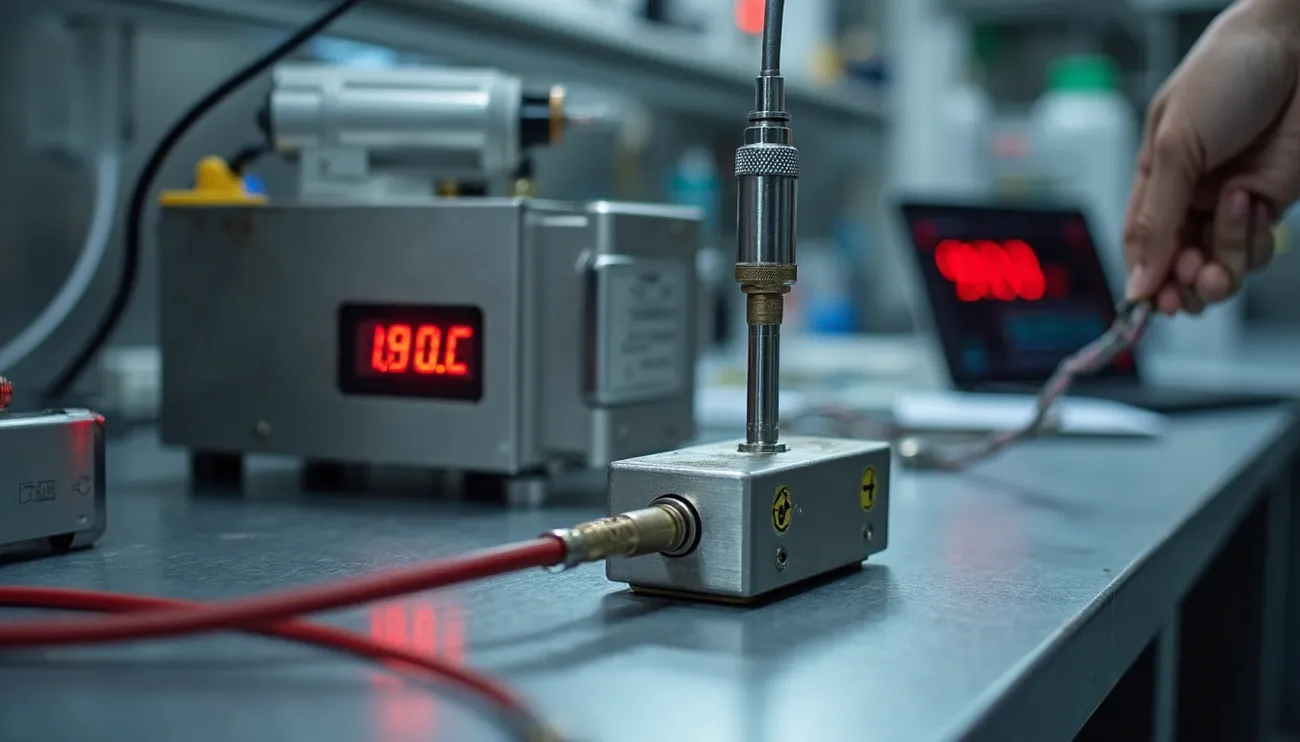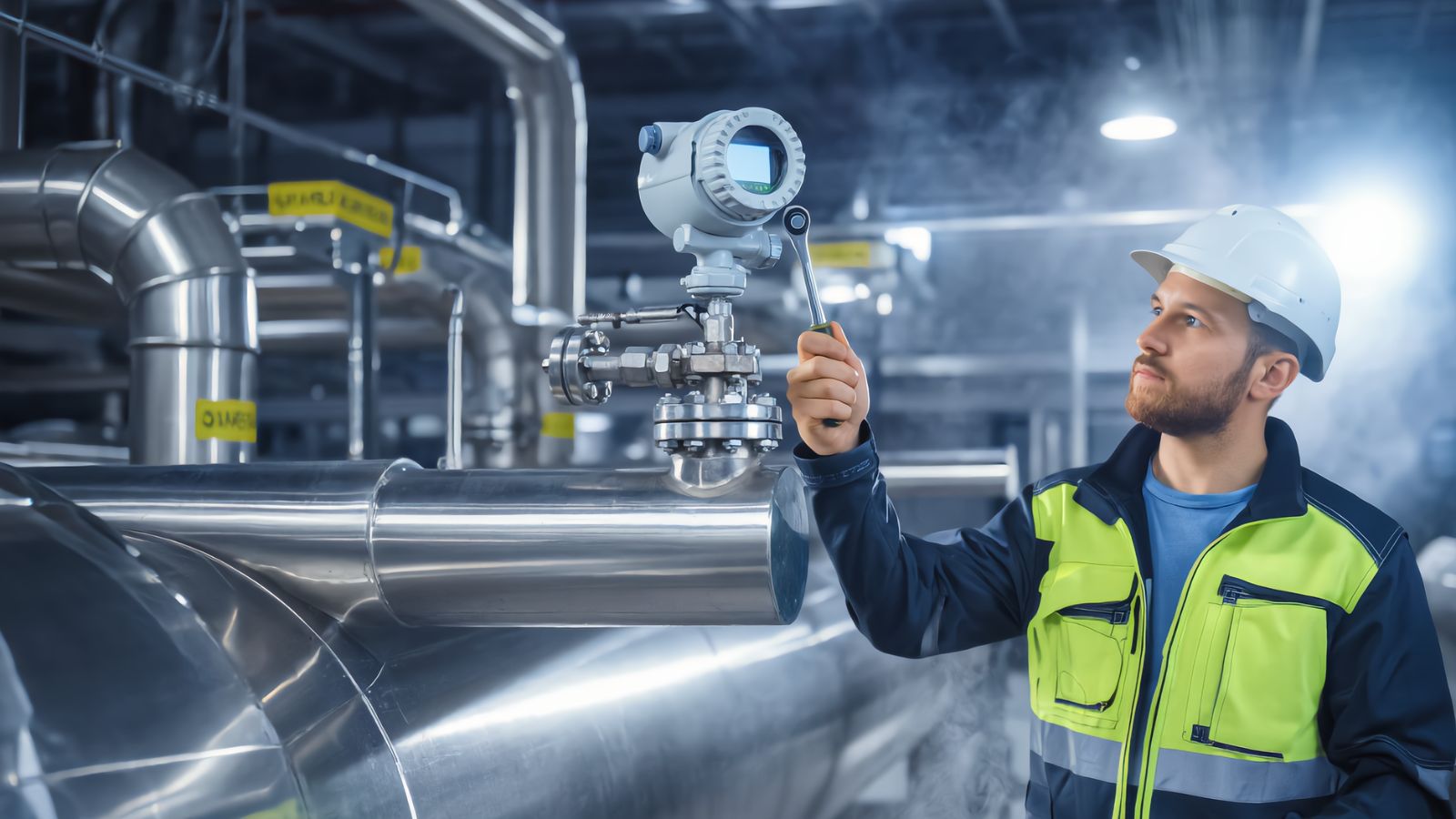LPG (liquefied petroleum gas) is a commonly used fuel source in various industries, including manufacturing, agriculture, and transportation. To ensure the optimal performance and efficiency of LPG systems, it is crucial to choose the right LPG flow meter. This buyer’s guide aims to provide you with the necessary information to make an informed decision when selecting an LPG flow meter for your specific needs.
What Is LPG Flow Meter?
LPG gas (Liquefied petroleum gas) is a kind of hydrocarbon with propane and butane as its main components; it is obtained as a by-product in the process of oil and natural gas exploitation and refining. liquefied petroleum gas is so important, and the flowmeter for measuring liquefied petroleum is also purchased in large quantities.
Composition of LPG Gas
Main ingredients: propane (C3H8), butane (C4H10)
Others: methane, ethane, propylene, butane
Understanding the importance of choosing the right LPG flow meter
Selecting the right LPG flow meter is essential for accurate measurement and control of gas flow. A reliable flow meter ensures that the correct amount of LPG is delivered, preventing under or over-supply of gas. This is crucial for maintaining the safety, efficiency, and cost-effectiveness of LPG systems. Additionally, choosing the right flow meter can help optimize the performance of LPG equipment, minimizing downtime and maximizing productivity.
LPG Flow Meter Types And Features
In this comprehensive buyer’s guide, we will explore different types of LPG flow meters, including thermal dispersion flow meters, Coriolis flow meters, gas turbine flow meters, and vortex flow meters. By understanding the principles, advantages, and limitations of each type, buyers can make an informed decision to select the most suitable LPG flow meter for their specific requirements.
LPG Flow Meter: Thermal Dispersion Flow Meter
Thermal dispersion flow meters, also known as thermal mass flow meters, utilize the principle of heat transfer to measure LPG flow accurately. These meters work by inserting a heated element into the flow stream and measuring the temperature difference between the heated element and the LPG. The rate of heat transfer is directly proportional to the mass flow rate, allowing for precise measurements.
One of the key advantages of thermal dispersion flow meters is their ability to measure LPG flow in large pipes with minimal pressure drop. They are also highly accurate, even at low flow rates, making them suitable for applications where precise measurements are critical. Additionally, thermal dispersion flow meters are often compact and require minimal maintenance, reducing overall operational costs.
However, it’s important to note that thermal dispersion flow meters may not be suitable for all applications. They are sensitive to changes in LPG composition and may require calibration if the composition varies significantly. It is crucial to consult with flow meter suppliers who can provide guidance on the compatibility of thermal dispersion flow meters with specific LPG compositions.
LPG Flow Meter: Coriolis Flow Meter
Coriolis flow meters are renowned for their exceptional accuracy and reliability in measuring LPG flow. These meters operate on the principle of the Coriolis effect, which involves the measurement of the mass flow rate by analyzing the changes in the fluid’s momentum caused by the rotation of the meter’s tubes.
One of the significant advantages of Coriolis flow meters is their ability to measure not only the flow rate but also other parameters such as density and temperature simultaneously. This makes them highly versatile and suitable for applications where multiple measurements are required. Coriolis flow meters are also known for their robust construction, making them suitable for demanding environments.
While Coriolis flow meters offer exceptional accuracy, they can be relatively expensive compared to other types of flow meters. Buyers should consider the initial investment cost and their specific requirements before opting for a Coriolis flow meter. Additionally, the size and weight of Coriolis flow meters may limit their use in certain applications, so it’s essential to consult with suppliers who can provide guidance on the ideal meter size for the intended application.
LPG Flow Meter: Gas Turbine Flow Meter
Gas turbine flow meters, as the name suggests, utilize the principle of a turbine to measure the flow rate of LPG. These meters consist of a rotor with blades that rotate as LPG flows through them. The rotational speed of the rotor is directly proportional to the flow rate, allowing for accurate measurements.
One of the significant advantages of gas turbine flow meters is their wide rangeability, meaning they can measure a broad range of flow rates effectively. They are also relatively compact and can be easily installed in existing pipelines. Gas turbine flow meters are known for their durability and can withstand harsh operating conditions, making them suitable for various applications.
However, gas turbine flow meters may not be ideal for low flow rate applications, as they require a minimum flow rate to ensure accurate measurements. They also require regular maintenance to ensure smooth operation. Buyers should consider the expected flow rates and maintenance requirements before selecting a gas turbine flow meter for their LPG measurement needs.
LPG Flow Meter: Vortex Flow Meters
Vortex flow meters offer a reliable and cost-effective solution for measuring LPG flow rates. These meters work on the principle of the von Kármán effect, which involves the detection of vortices created when LPG flows past an obstruction in the meter. The frequency of these vortices is directly proportional to the flow rate, allowing for accurate measurements.
One of the key advantages of vortex flow meters is their ability to measure LPG flow rates without any moving parts, resulting in minimal maintenance requirements. They are also highly accurate and can handle a wide range of flow rates. Additionally, vortex flow meters are often compact and can be easily integrated into existing pipelines.
However, vortex flow meters may not be suitable for applications where low flow rates need to be measured accurately, as they can be affected by low flow conditions. The presence of impurities or debris in the LPG can also impact the accuracy of vortex flow meters. It is crucial to consult with suppliers who can provide guidance on the suitability of vortex flow meters for specific LPG compositions and operating conditions.
SenTec supply rugged butane/propane gas flow meter at competitive low price from China gas flow meter manufactures.
Factors to consider when choosing an LPG flow meter
When choosing an LPG flow meter, several factors need to be taken into consideration. These include the required accuracy, flow rate range, temperature and pressure conditions, compatibility with LPG composition, installation requirements, and maintenance needs. It is important to evaluate these factors based on your specific application and consult with flow meter experts or suppliers to ensure the best fit for your requirements.
Key specifications to look for in an LPG flow meter
To ensure optimal performance, there are key specifications that should be considered when selecting an LPG flow meter. These include accuracy, repeatability, turndown ratio, pressure and temperature ratings, material compatibility, and response time. Accuracy and repeatability are crucial for precise measurement, while the turndown ratio determines the flow range the meter can handle. Pressure and temperature ratings should align with the operating conditions, and material compatibility is important to prevent corrosion or contamination. Lastly, a fast response time is essential for real-time monitoring and control.
Common features and functionalities of LPG flow meters
LPG flow meters come with various features and functionalities to enhance their performance and ease of use. Some common features include digital displays for real-time readings, totalizers for cumulative flow measurement, alarms for abnormal conditions, and communication capabilities for integration with control systems. Additionally, advanced flow meters may offer diagnostics, self-calibration, and data logging functionalities. It is important to consider the specific features required for your application and ensure compatibility with existing systems.
Price range for LPG flow meters and considerations for budget-conscious buyers
The lpg flow meter price can vary significantly depending on the type, brand, and specifications. Positive displacement flow meters generally fall within the lower price range, while ultrasonic flow meters tend to be more expensive. It is important to balance cost considerations with the required performance and reliability. Budget-conscious buyers should evaluate the long-term cost of ownership, including maintenance and calibration requirements. Additionally, exploring options from reputable suppliers and considering refurbished or used flow meters can help reduce costs without compromising quality.
Top suppliers of LPG flow meters and their offerings
When searching for LPG flow meters, it is advisable to consider reputable suppliers who offer quality products and reliable support. Some of the top suppliers in the market include Europump, Endress+Hauser, and SenTec. Company A specializes in turbine flow meters with a wide range of options for different applications. It is recommended to explore the offerings of these suppliers and compare them based on your specific requirements.
Tips for buying an LPG flow meter
To ensure a successful purchase of an LPG flow meter, consider the following tips:
- Clearly define your requirements, including flow rate range, temperature and pressure conditions, and accuracy needs.
- Research different flow meter types and their advantages and limitations.
- Consult with experts or suppliers to get professional advice tailored to your application.
- Compare specifications, features, and pricing from multiple suppliers.
- Consider long-term costs, including maintenance, calibration, and potential downtime.
- Request product demonstrations or trials if available.
- Read customer reviews and testimonials to gauge the reliability and performance of the chosen flow meter.
- Ensure proper installation and follow manufacturer’s guidelines for maintenance and calibration.
Conclusion and final thoughts
Choosing the right LPG flow meter is crucial for optimal performance, safety, and efficiency of LPG systems. By understanding the importance of selecting the appropriate flow meter, comparing different types and considering key factors, buyers can make an informed decision. It is essential to evaluate the specifications, features, and pricing of flow meters, while also considering long-term costs and customer reviews. By following these guidelines and tips, buyers can confidently select the right LPG flow meter that meets their specific needs, ensuring accurate measurement and control of gas flow.
CTA: If you’re in need of a reliable LPG flow meter for your application, contact us today for a consultation and find the perfect solution for your needs.




